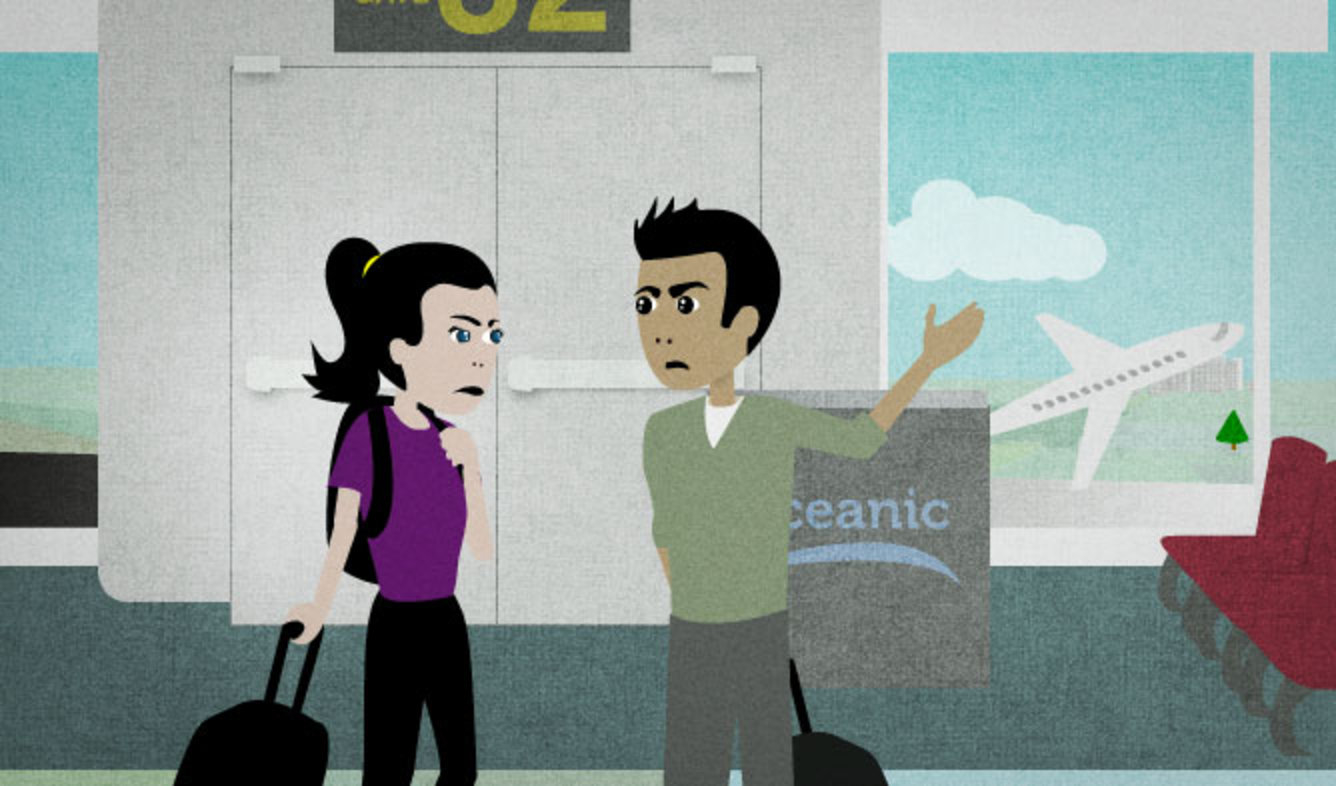“Sure. Blame it on me.”
You and your husband are traveling. You got to the airport late and missed your flight. He blames you for missing the flight because you took longer to get ready. You think that it's his fault that you missed the flight, and you can't believe that he's blaming you.
Sure. Blame it on me.
Want Video and Sound? Follow us on YouTube

Sure.
English speakers sometimes start a sentence with "Sure" in an argument. They use "Sure" sarcastically. Instead of being a way of agreeing with the other person, it shows that they can't believe what the person has just said.
For example:
A: Nina, I need to use your car. Let me borrow it, just for a few hours.
B: Sure, I'm supposed to let you borrow my car, when you won't even pay for my dinner? No way.
In this example, Person B does not want to let Person A borrow the car.
blame (someone) for (something)
"Blaming" someone for a bad situation means saying that they caused it. You can blame someone for a mistake, a bad decision, an accident, etc.
Are you going to keep on blaming your parents for all of your problems and flaws? At some point, you need to take responsibility for your own life.
If someone has caused something good, you don't "blame" them for it. Instead, you "give ___ credit for ___" or "attribute ___ to ___."
Mandy gave me credit for being the one who came up with the original idea.
